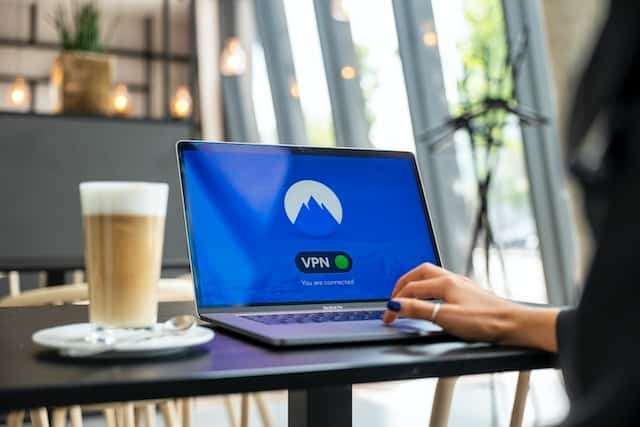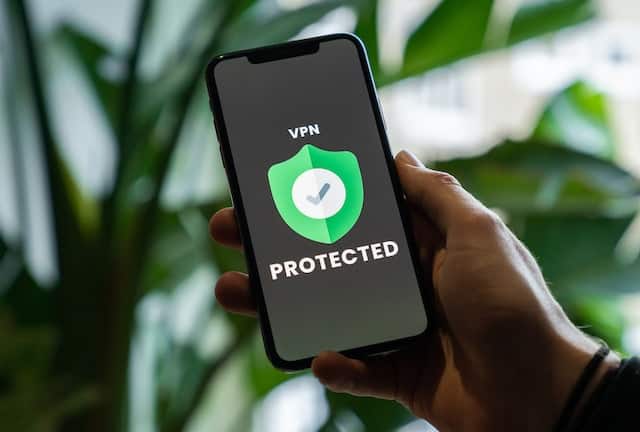
Are you ever concerned about the safety of your personal data when using the internet? Have you considered using a virtual private network (VPN) to secure it? If not, now is the perfect time to learn what a VPN is and how it can help keep your personal information safe. Through exploring this workflow background information, you will understand why having access to a VPN is so important in today’s digital landscape.
With more people than ever interacting with each other online through social media platforms or messaging applications, having control over our personal data has become increasingly vital in order to protect ourselves against cyber-attacks. By understanding exactly what a VPN does and its role in protecting sensitive information shared on these services, we can make sure that our online activities remain free from potential threats!
Table of Contents
What is a VPN and why do you need one to protect your data online
In today’s digital age, cybersecurity is of utmost importance. You may have heard of VPNs, but do you know what they are and why you need one to protect your data online? A Virtual Private Network, or VPN, is a tool that encrypts your internet connection, making it difficult for anyone to intercept the data you send and receive online. This means that sensitive information such as credit card details and private emails are kept safe from hackers and cybercriminals.
Additionally, a VPN can also help you bypass geographic restrictions and access content that is normally unavailable in your region. For example, a Buffalo VPN could help you access streaming services that are otherwise blocked. A VPN is a must-have for anyone who wants to protect their data and privacy online, as it provides an extra layer of security that traditional methods cannot offer. Not only does it encrypt your data, but it also masks your IP address and makes your online activities anonymous.
How does a VPN work to keep your information secure
We live in a world where internet security is a top priority, and one of the ways to keep personal information safe is by using a VPN or Virtual Private Network. So how does it work? When you use a VPN, your device connects to a remote server through an encrypted tunnel, which protects your data from prying eyes.
Your IP address is also masked, meaning that your online activity is protected from monitoring. This not only keeps your sensitive information secure but also allows you to access online content that may be restricted in your area. With a VPN, you can rest easy knowing your online activity is secure and private.
Benefits of using a VPN to browse the internet safely
In today’s digital age, online privacy has become one of the biggest concerns for internet users. With the rise of cybercrime and government surveillance, browsing the internet safely is more important than ever. This is where a virtual private network (VPN) comes in handy. A VPN encrypts your internet traffic and masks your IP address, making it nearly impossible for anyone to track your online activity.
Not only does this protect you from hackers and data breaches, but it also allows you to access restricted content and browse the internet anonymously. With a VPN, you can feel confident that your personal information is safe and secure.
Understanding encryption and how it’s used in VPNs
Encryption is a vital tool in the world of cybersecurity, especially when it comes to VPNs. But what is encryption, and how does it work? Simply put, encryption is the process of converting plain text into an unreadable code, known as ciphertext. This ensures that only authorized parties can access the information. In a VPN, encryption is used to secure the connection between the user’s device and the VPN server, ensuring that their online activity remains private and protected. So, the next time you connect to a VPN, rest easy knowing that your data is encrypted and safe from prying eyes.
Different types of VPNs and what they offer
Virtual Private Networks, or VPNs, have become increasingly popular over the years as a means of securing online activities and providing privacy. There are several types of VPNs available in the market, each designed to cater to different needs such as privacy, speed, and security. One of the most common types is the Remote Access VPN, which enables individuals to access their company’s network from a remote location.
The Site-to-Site VPN, on the other hand, connects networks in two different physical locations through the internet securely. A third type is the SSL VPN, which offers secure access to web applications and websites on the internet. With several types of VPNs to choose from, it is essential to understand what each one offers to find the best fit for your specific needs.
Tips for choosing the right VPN for you
Choosing the right VPN can be a confusing process, but with the right tips and tricks, you can find a suitable VPN that meets all your needs. Firstly, consider the security level provided by the VPN. Ideally, you need a VPN that has robust encryption and a no-logs policy to keep your online activities private.
Furthermore, assess the availability and reliability of the servers. A reliable VPN should have a large number of servers located in various countries. Additionally, check the cost of the VPN, which can vary significantly. Finally, read reviews and ratings of the VPN before making the final decision. By following these tips, you can choose the right VPN that fits your requirements and budget.

In conclusion, a VPN provides essential security by encrypting your data and allowing you to browse the internet safely. When deciding which VPN to use, important factors to keep in mind include the level of security and privacy offered, the type of encryption used, and its ease of use. With so many different factors to consider, it is important to do your research and make an informed decision when choosing the right VPN for you. By taking advantage of the security protection a VPN offers, you can browse with confidence knowing that your personal data is safe online.

